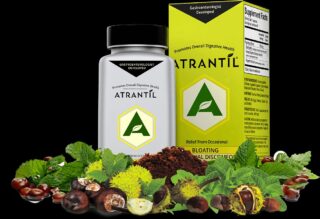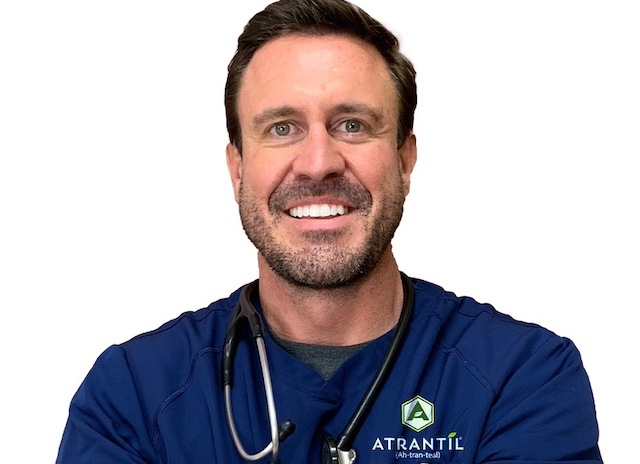I’m sure you’ve heard of the phrase “you are what you eat,” and this is likely based on how your diet affects an integral part of your body: your gut. Dr. Kenneth Brown understands the importance of gut health very well. He uses a mix of traditional medicine and natural therapeutics to treat patients suffering from a range of gastrointestinal issues. Chatting to the bloat-beating expert on #WednesdayWellness, Dr. Brown covered various digestive health topics that reflect his work and the importance of better gut health.
Dr. Kenneth Brown: Longevity Begins and Ends In The Gut
Dr. Kenneth Brown is one of the top gastroenterologists in Plano, Texas, and the host of the Gut Check Project podcast. He covers various digestive health topics that reflect his work in bridging the gap between pharmaceuticals and nutraceuticals. He is considered a go-to resource in his field,
Dr Brown believes the further away we get from nature, the closer we get to illness. The aim is to heal the gut microbiome with fiber-rich foods and the gradual reintroduction of diverse foods for more dietary options.
As the saying goes: “Pay the farmer now or pay the doctor later.”
The root cause of aging
As I mentioned, you are what you eat and your choice of diet can heavily impact your health because it influences your gut. By gut, Dr. Brown refers not only to the whole organ system but also to the microbiome inclusive of it.
“The whole idea of anti-aging and longevity comes down to the gut and the microbiome.”
With our modern eating habits comes the creation of inflammation in the body. Inflammation is the root cause of actual aging, and if your microbiome gets old, you get old, and this is evident with various gut symptoms that have us visiting the doctor. Dr. Brown says that people will visit the doctor and be diagnosed with IBS (irritable bowel syndrome) and these symptoms, or other bowel symptoms, are warning signs that something more is going on,
“So when I see people and I think, okay, do they have a healthy gut? I ask those questions. Do you bloat after you eat? What are your bowel habits? Then we can go into other things.”
Dr. Brown adds that he inquiries about their fatigue, brain fog, and increased skin issues, such as acne, eczema, atopic dermatitis, as all of these issues can all be tied to the gut,
“If you have something going on, there is a high likelihood that if you can improve your gut health through healing the inflammatory process in the lining of the gut and also improve the microbiome, then you will probably benefit in all these other aspects.”
With that, Dr. Brown concludes that you’ll know that you have a healthy gut if you don’t have any issues at all, and that includes not being bloated, “Many people are bloated and that they think it’s normal. Rather, it’s a warning sign”
So how can you confirm if your gut is in trouble?
Well, there isn’t a single, particular test for that.
Dr. Brown elaborates that there are types of tests like breath tests that can hint if there’s SIBO (small intestinal bacterial overgrowth) and there are also blood tests that can indicate inflammatory markers. With that, health practitioners can then put all the pieces together.
Better gut for a better mood
Not only are you what you eat, but your gut may also be what you feel. Dr. Brown outlines that 90% of the neurotransmitter serotonin is produced in the gut, so if you don’t have a healthy gut, a functional medicine doctor can help you address this imbalance and improve neurotransmitter production. Additionally, the reward neurotransmitter, dopamine, is converted by an amino acid and the enzyme that helps that process happens in the gut lining.
“So, if you have inflammation going on in the intestinal lining, you won’t be able to produce the sufficient amount of neurotransmitters that keep us happy, motivated, and calm.”
Considering the alarmingly rising rates of depression and anxiety worldwide, improving gut health may be a tool to improve global mental health. Referencing a talk he’s given in the past, Dr. Brown shares that there is a distinct line at 1978, where childhood obesity just starts going up. Then a few years later, in the early 80s, anxiety and depression started doing the same thing,
“This all coincides with a lot of big food introducing high fructose corn syrup, highly processed seed oils, emulsifiers, and so on. So we know that there’s this correlation with that.”
So picture this: you’re eating a highly processed standard American diet, and you are unmotivated to be active because you’re down on dopamine. Yet, the food gives you a small reward. So, you have this constant need, yet this need creates inflammation and a chronic crisis as children are showing up with, what should be, adult diseases and cancer diagnoses at younger ages, as well as increased autoimmune disease.
“If we can protect the gut and improve the microbiome, I think we can stop a lot of disease progression.”
Building a healthier gut
Have you heard of the five-second rule? You drop something on the floor, and if you pick it up within five seconds, then it’s safe to eat? Well, Dr. Brown strongly disagrees with this rule.
“If there’s bacteria everywhere, then a certain amount of bacteria will attach. However, the beauty is that if you have a healthy gut your body will destroy the bacteria.”
But what if your gut is really unhealthy? How long would it take for you to remedy a gut in distress?
Dr. Brown suggests that it all comes down to remodeling the microbiome, and this can take some time – especially if you’ve been following an unhealthy diet.
Take for instance those who create New Year’s resolutions and choose to quit fast food and improve their eating habits.
“They drastically switch their diet and they feel worse and the reason is that they’ve spent so many years feeding their body this very specific processed food diet that it affects your microbiome.” explains Dr. Brown, “Your microbiome becomes adept at not having issues with digesting that.”
However, that’s not good news as eating fast food means that you’re lacking in potent anti-inflammatory metabolites that go throughout your whole body, and these are produced by you following a gut-friendly diet,
“If you’re going to eat something, you may like it. You may love that highly palatable food that is filled with high fructose corn syrup and emulsifiers, but your microbiome doesn’t really like it.”
A gut-friendly diet
The key to a gut-friendly diet is to focus on foods that can feed the microbiome and later produce anti-inflammatory molecules. Aside from fiber, one compound that should be in your diet are polyphenols.
Polyphenols are the molecules that make fruits and vegetables colorful, and Dr. Brown refers to them as Mother Nature’s secret weapon, with quercetin, green tea extract, resveratrol, and ginkgo biloba all being versions of polyphenols.
Prebiotics vs. Probiotcs
When discussing a gut-friendly diet, you might come across the terms prebiotics and probiotics. Prebiotics are what feed your microbiome, such as polyphenols and fiber.
Now, probiotics, on the other hand, is where skepticism is.
“Here’s the problem with traditional probiotics. If you’re taking probiotics, and it helps, great, continue. Yet, the current data and what our societies are saying is that they’re equivalent to placebo at six months time,” outlines Dr. Brown, who reiterates that there are always going to be a few that will benefit, “There are so many types and so many strains and so many amounts.”
“I always say that if probiotics actually worked, I wouldn’t have much of a practice.”
So, are probiotics not beneficial?
Dr. Brown unpacks how live probiotics probably get destroyed in the digestive process before they can make it into your microbiome. In somebody with bacterial overgrowth, this type of placebo can add fuel to the fire. Thus, his preference is to switch over to a sporebiotic, as these can survive the digestive tract, and then include polyphenols, and that way you have this awakening that can take place.
A sweeter gut
I’ll admit that I have a sweet tooth, so I wonder how this is impacting the state of my gut.
According to Dr. Brown, my sweet tooth is souring my gut health.
Not only can sugar disrupt the microbiome, but this is also true for sweeteners like xylitol and maltitol, which have very poor absorption, and can create a lot of gastrointestinal distress.
If you have a raging sweet tooth like myself, Dr. Brown recommends sticking with the most natural ones, like Stevia and monk fruit.
Gut-friendly drinks
So we know that sugar may not be sweet on our gut, but what about alcohol?
“If we look at what it does to the gut, alcohol can alter the microbiome. It does increase intestinal permeability, is a direct inflammatory agent in the intestinal lining, and we know that it causes liver damage over time and can lead to acid reflux.”
“The reality is that alcohol truly is something that is quite toxic to the gut.”
Antrantil: Ultimate Gut Supplement
In addition to his practice, Dr. Brown founded Atrantil, an all-natural supplement formulated using three natural ingredients that help reduce bloating and abdominal discomfort and restore healthy bowel movements while feeding the gut microbiome. Atrantil underwent multiple clinical tests, including a recent study by Northwestern University’s Feinberg School of Medicine. The study found significant improvements in bloating, gas, abdominal discomfort, and constipation.
Antrantil is a gastro-entestinal capsule developed by Dr. Brown, while he was developing an antibiotic for SIBO. In discussions with the primary researchers, Dr. Brown was told that they would never help the bloated constipated person because they’re producing methane and, as a result, would not respond to any antibiotics that they had.
 With that, Dr. Brown wondered if they could figure out a way to do this. Hailing from a state where they have a lot of cattle, Dr. Brown recalled how farmers were advised to feed certain food products to cattle to decrease their production of methane. So Dr. Brown adopted a similar approach because it turns out that the farmers were looking at different polyphenols, as these polyphenols absorb gas and get rid of methane-producing bacteria.
With that, Dr. Brown wondered if they could figure out a way to do this. Hailing from a state where they have a lot of cattle, Dr. Brown recalled how farmers were advised to feed certain food products to cattle to decrease their production of methane. So Dr. Brown adopted a similar approach because it turns out that the farmers were looking at different polyphenols, as these polyphenols absorb gas and get rid of methane-producing bacteria.
“So after years of research I figured out that by putting three large stable polyphenols together, they collectively get rid of the bacteria producing the methane. As such, this would be great for people with SIBO. I did two clinical trials, a randomized placebo-controlled trial and we did one treating people that had failed everything and that’s when I came up with this combination we knew that it was effective. Enter Antrantil.”
Antrantil has not only been shown to help four out of five people with bloating, but these particular molecules are also anti-aging, anti-inflammatory and they feed your microbiome.
Grab Antrantil capsules here.
Find Dr. Kenneth Brown on Instagram here
Dr Kenneth Brown shared a wealth of information in the gut. Watch the video and learn more about this important subject on Longevity’s #WednesdayWellness.
Watch The Interview
View this post on Instagram



![women [longevity live]](https://longevitylive.com/wp-content/uploads/2020/01/photo-of-women-walking-down-the-street-1116984-100x100.jpg)










